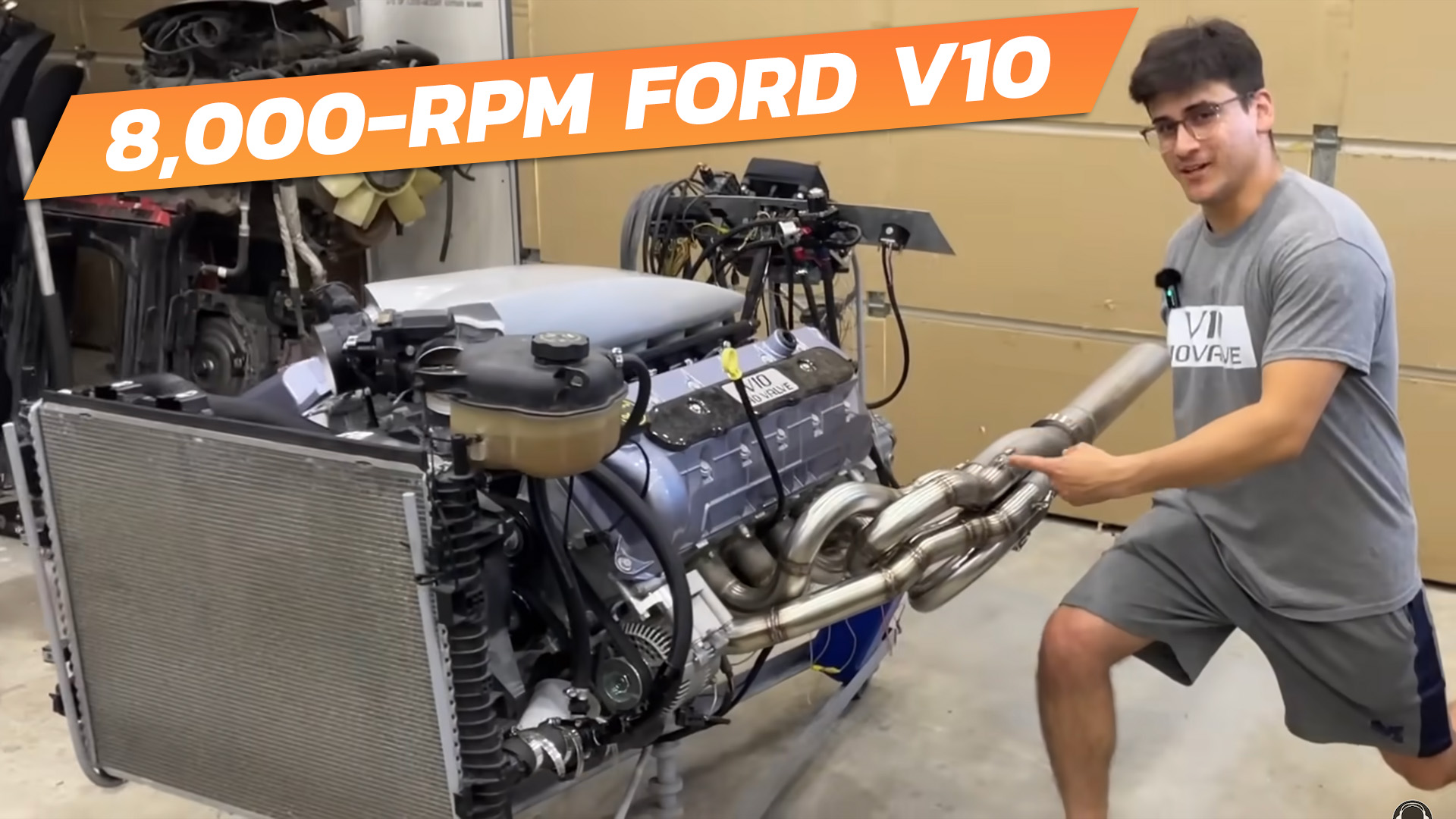

Of all the engines in Ford’s Modular family, the 6.8-liter V10 might be considered the worst. On top of the spark plug thread problems that plagued the V8s, it was simply a more complex, less efficient engine. Worse still, it was underpowered and didn’t even make a nice noise. Yet it was only a matter of time before someone decided to bring out its unrealized potential, which some YouTubers are doing via a high-revving naturally aspirated build with an exhaust inspired by V10 Formula 1 engines.
YouTube channel Build It Yourself has been documenting its build process for the last two years as it preps the engine to go into a final-gen Lincoln Continental. The way the hosts tell it, there’s basically zero aftermarket for these engines, with even basic upgrades like performance intakes eluding them. The most anyone had ever done with the 6.8, it seemed, was Ford itself, which apparently built some prototype with twin-cam heads (as opposed to the single-cam two- and three-valve production engines). So, in the spirit of their channel’s name, they set out to build it all themselves.

Appreciating the scope of their work requires starting at the intake, before moving through the rest of the motor. Dual throttle bodies open into a fully custom intake manifold, which mates to twin-cam cylinder heads adapted from the supercharged Mustang SVT Cobra (or “Terminator”). The hosts had to cut up a few heads and weld them back together (carefully) to make them five cylinders long, and then get custom camshafts made to fit. Those cams open and close four valves on a bottom end that’s been built to handle a compression ratio raised from 9.2:1 to an outrageous 13:1. That exceeds the 11:1 of many 5.0-liter Ford Coyote V8s. Their goal? 8,000 rpm and 700 horsepower, and for one hell of an exhaust note throughout.
That’ll be accomplished with five-into-one collectors with equal-length runners, which is how F1 V10s were designed back in the day. Their sound will be further improved with an X-pipe, which Holley says not only boosts full-range power but raises the exhaust note. That’s exactly what you want from a revvy NA V10.
While the video above shows the engine firing up and running, it only explores half its intended rev range, reaching 4,000 rpm. It’s hardly even a preview of what the engine will sound like at its best—near the limiter under full load on a dyno. It won’t sound quite like an F1 engine, but it’ll still be phenomenal, and I look forward to the day we all get to hear it at full tilt.
Got a tip or question for the author? You can reach them here: james@thedrive.com